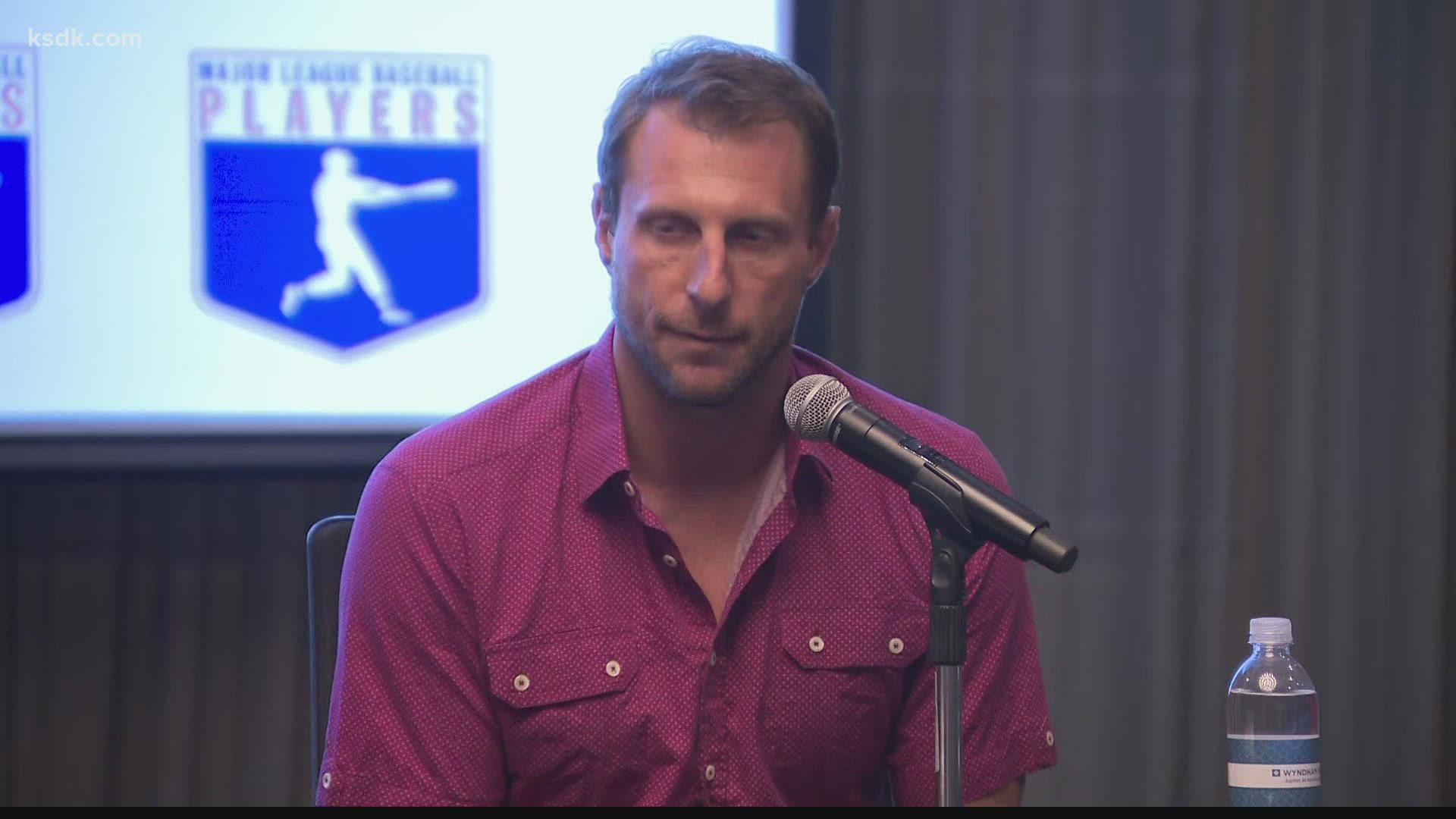ST. LOUIS — Major League Baseball made the decision to cancel the first two series of the 2022 season on Tuesday as the lockout continues.
With the owners and players at an impasse, we're still not sure when we could see the game back again.
So, why did we get to this point?
Director of the sports business program at Washington University, Patrick Rishe, gave a look at some of the major points of the dispute.
First of all being, this is a lockout from the owners of the Major League players. So why is it happening now, and why are games being canceled, instead of continuing to negotiate while operating as normal?
"This is the reason why in any league, when the owners initiate these work stoppages, it happens at the beginning of the season. Because you want to hurt the players where they live," Rishe said. "You're not going to lose as much money from the owners' standpoint at the beginning of the season versus at the end of the season where your crowds pick up, your ratings pick up and of course the postseason."
The players won't get paid for canceled games, but the owners don't seem to be phased by missing games, even though there has been some chatter from MLB Commissioner Rob Manfred and elsewhere about how it's not always "profitable" to own a baseball team.
"I think most teams in Major League Baseball are turning a profit. I think the key to that profit is the size of the national media revenue, and also the size of their local media revenue. There may be a couple of teams that, they wouldn't admit this, maybe they do save a little bit of money and actually are better off playing fewer games. But I would say that 25 out of the 30 MLB teams would want to play all their games," Rishe said.
One of the biggest sticking points in negotiating has been the luxury tax threshold. Rishe breaks down that particular standoff.
"Baseball has had a luxury tax in place for roughly 20 years to try and create more competitive balance across the different cities because teams are in different market sizes. The owners want to keep that luxury tax at $220 million and the players want something closer to $240 million. Again it goes back to who gets a bigger share of the pie. If the luxury tax threshold is higher, teams are gonna have to spend more. If it's lower, then all of a sudden obviously owners are reducing the amount they have to spend on talent," Rishe said.
While the owners and players argue over financial differences, Rishe said baseball has another problem on its hands, too. The game is still struggling to grab the younger audience compared to sports like football and basketball.
"What is more true however is I think something that's impacting all age groups is the slowness of the game. Some of the shifting of the game that's taking away some of the interests and intrigue. It's either home runs or strikeouts. Where's the in-between? Analytics taking over? I think all of those things are making the sport less attractive, not just to younger fans, but to all fans," Rishe said.
"Baseball has made some progress in trying to get their athletes to be active on social media. This is something that they lag well behind, and it's part of the reason that they don't have the attractiveness with the younger audiences. The NBA in particular, and to a lesser degree, the NFL, they encourage their players, especially the NBA, to be active on social media and show their personalities. And it's something the sport is lacking in baseball. You have a few young stars, some of them are showing off their personalities, but it's not enough. And when you're dealing with a slow pace of play, these are issues that are starting to become, potentially in the long-term, insurmountable for baseball trying to get back into the limelight the way the NFL and NBA are."

